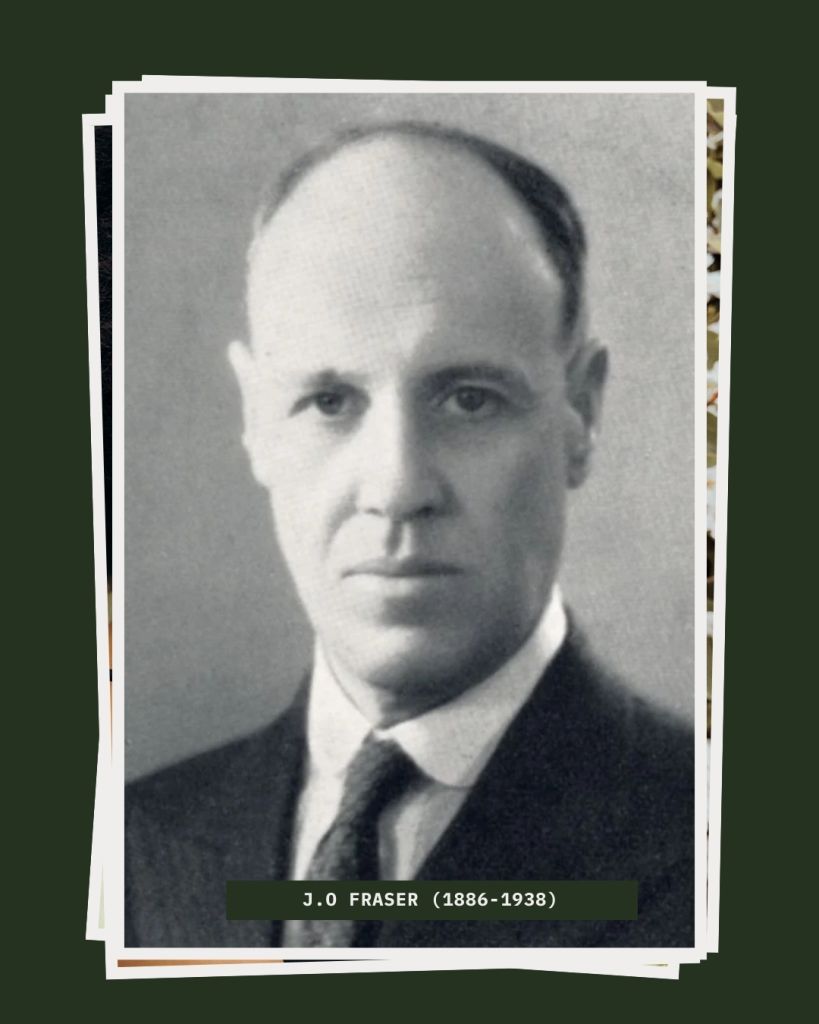In this week’s sharing, which you can find on our Facebook page, I pointed to three areas where J.O. Fraser, in seeking to reach the Lisu people with the gospel, showed unusual respect. Here I’ll add a little more text from the book to illustrate the points I made, plus some related Scriptures. I’ll finish with an unusual quote that I came across recently.
- The respect James showed in waiting for them to invite him to visit.
James’s interest in the tribal people had not lessened at all, but both he and Mr. Embery felt that they should wait for an invitation. In his diary, Fraser wrote:
‘The matter is in the Lord’s hands. If He wants me to go, He will send me. It would be very unwise to attempt to rush things or force a door which He has closed. But we shall see. God has done great things for us among the Lisu at the other side of the province, and we cannot but hope that he will work effectively for the tribespeople here as well.’
One day, the cook came back from the market in great excitement. With him came a Lisu guide, ready there and then to take James to his Lisu village called the Pleasant Valley.
Thus it was that, about a year after his first coming to Tengyueh, James set out on a May morning with his Lisu guide. - James’s respect in his willingness to engage with local customs and culture, showing respect even in difficult situations. James wrote the following about his first visit to the Lisu:
“The meal was not a sober, ceremonious sort of business, but more like a family party with plenty of jollity. I don’t know who the betrothed people were, but they did not figure specially. After the feeding part (I am afraid the drinking went on all night), there was a bit of a break, and I could not make out any order in the proceedings. I went inside and sat with about a dozen others round the big log fire. One man was recounting an old Lisu legend in a sing-song voice, and the rest would break in with a sort of chorus. I could not understand any of it.
Before long I was told they were ready for the dance, which would be kept up till daylight. What sort of dancing it would be, I had no idea. My host told me that I could go back to his house whenever I liked but evidently thought I would wish to stay and see it through. I was in a corner, almost unnoticed. Drinking was going on all the time. The results of the copious drinking were predictable.”
James found no one in any frame of mind to listen to what he had come to say. - James’s respect in seeking to learn the difficult Lisu language.
James added to the general merriment by being unable to speak a word of Lisu. They were wide-eyed when he started jotting down sounds on paper. “He’s taking away our language,” complained one, “and we shall have nothing to speak.” By the end of the day, James had secured 400 phrases by means of the English alphabet. This conjuring trick with their language provided endless entertainment to the villagers. They were doubled up with laughter over the speaking paper.
The Chinese had always said that tribal gibberish could not be written down. James proved them wrong. He was the first to learn and commit their language to writing. His phonetics are still in use today. (Quotations taken from Mountain Rain, a biography of James O. Fraser by Eileen Fraser Crossman.)
I came across this quote from about a hundred and fifty years ago which is still relevant today.
Let us remember how very soon the missionary character of the Church was forgotten, and the Church, instead of obeying the commandment of Jesus to go and make disciples of all nations (in fact, that it was chiefly a missionary association), neglected this great and important calling… It is astonishing how a commandment so simple and distinct, and how a duty which you would have imagined would be eagerly greeted by the impulse of gratitude, of affection, and of compassion, was forgotten for so long a time, in the churches of the Reformation especially.
Now we are accustomed to hear of mission work among the unreached nations, and to find that a great multitude of people are interested in it, and regard it with respect; but it was only at the commencement of the last century (i.e. the 1700s), and with great difficulty, [that] the attention of the Church was roused to this important duty; and even in the… Church of Scotland there were a number of ministers who thought that the state of heathenism was so utterly corrupt, and that there was so much to be done in our own country, that it was altogether a Utopian project to think of converting the idolaters, and that it was not our imperative duty to trouble ourselves with their wretched condition. (Adolph Saphir, 1831-1891).
Some Scriptures that show the Apostle Paul’s respect for those he wanted to reach with the gospel was the same as J.O. Fraser’s.
Paul’s Respectful Approach to the Athenians in Acts 17:22-23 (ESV):
“So Paul, standing in the midst of the Areopagus, said: ‘Men of Athens, I perceive that in every way you are very religious. For as I passed along and observed the objects of your worship, I found also an altar with this inscription: “To the unknown god.” What therefore you worship as unknown, this I proclaim to you.'”
1 Corinthians 9:19-23 (ESV):
“For though I am free from all, I have made myself a servant to all, that I might win more of them. To the Jews I became as a Jew, in order to win Jews. To those under the law I became as one under the law (though not being myself under the law) that I might win those under the law. To those outside the law I became as one outside the law (not being outside the law of God but under the law of Christ) that I might win those outside the law. To the weak I became weak, that I might win the weak. I have become all things to all people, that by all means I might save some. I do it all for the sake of the gospel, that I may share with them in its blessings.”
Romans 14:13-15 (ESV):
“Therefore let us not pass judgment on one another any longer, but rather decide never to put a stumbling block or hindrance in the way of a brother. I know and am persuaded in the Lord Jesus that nothing is unclean in itself, but it is unclean for anyone who thinks it unclean. For if your brother is grieved by what you eat, you are no longer walking in love. By what you eat, do not destroy the one for whom Christ died.”
Romans 9:1-3 (ESV):
“I am speaking the truth in Christ – I am not lying; my conscience bears me witness in the Holy Spirit – that I have great sorrow and unceasing anguish in my heart. For I could wish that I myself were accursed and cut off from Christ for the sake of my brothers, my kinsmen according to the flesh.”



